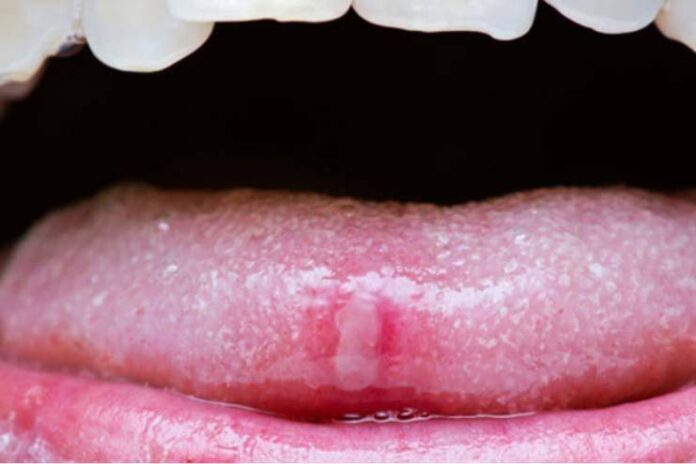Affiliate Disclaimer
Some links in this article are affiliate links. We may earn a small commission if you make a purchase through these links, at no extra cost to you. We only recommend products we find useful to our readersBlisters and sores are ordinary, but have you ever had sores or blisters on your tongue? That painful bump can make chewing and swallowing food quite tricky.
Tongue sores can result from various causes, the most common being accidental tongue biting. Although this is one of the most common reasons, it can also be painful.
In this article, we will discuss what one needs to know about tongue sores and the 19 possible home remedies for curing them.
What are Tongue Sores?
Tongue sores are a specific form of mouth ulcer caused by a lesion of any tissue in and around the tongue. They are characterized by a blister-like bump-like formation on the tongue, which is sometimes very painful and even irritates when it comes in contact with spicy food. In severe cases, tongue sores can also cause inflammation and may hinder one’s speech and eating habits.
What Causes Tongue Sores?
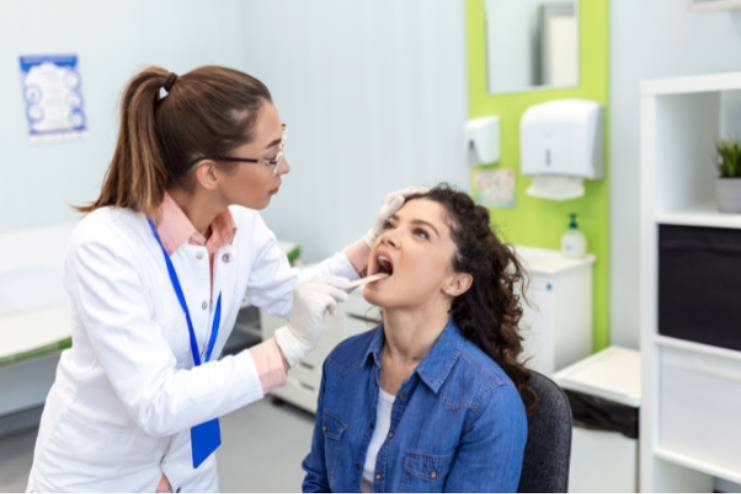
Various factors cause tongue sores. Below are some of the significant causes.
1. Trauma
Blisters on the tongue can also be formed due to the consumption of hot foods. Grinding or clenching your teeth can cause intense pain on the outer edge of your tongue, leading to discomfort until it fully heals.
2. Infection
Certain infections, such as enlarged papillae, can form red bumps or sores under the tongue. Although they can be very painful, they may heal on their own. Oral thrush may cause yeast infection and tongue pain and may form specific white patches on your tongue. It may also appear due to the uncontrolled use of antibiotics.
3. Mouth ulcers
Ulcer forms small bumps on specific points on your tongue. These bumps are known as oval ulcers or canker sores. They can appear in red, yellow, or gray hues and may result from biting your tongue, eating something sharp or hard, or experiencing hormonal changes.
4. Smoking

Smoking or can also lead to tongue pain. Smoking also raises the risk of developing cancer in your mouth as well as in your throat. Smoking can cause various issues, including stained teeth, tooth decay or loss, brown spots on gums, and bad breath.”
5. Food Allergy
Certain foods may hurt your tongue, causing oral allergy syndrome. These food allergies are most commonly caused by the consumption of raw vegetables, fruits, or tree nuts.
6. Vitamin Deficiency and Anemia
Lack of certain essential vitamins in the body is one of the primary reasons behind the development of tongue sores. The deficiency of Vitamin B-12 often results in imparting a beefy red color to the tongue. Lower levels of zinc and folate also contribute to the problem of tongue sores.
7. Neuralgia
Yet another cause of tongue sores is nerve irritation or degeneration. If you haven’t been experiencing any serious trauma or shock but still have persistent pain in your tongue, you may be suffering from neuralgia. This condition results in the recurrence of severe pain in the tongue along with soreness on the side of the tongue.
8. Burning Mouth Syndrome

Just as the name suggests, burning mouth syndrome is characterized by a burning sensation in the tongue and mouth in general. People suffering from this problem often complain of scalding heat coursing through their mouths even if they haven’t had anything overly spicy or hot. One of the most common symptoms of this syndrome is blisters on the tongue.
9. Behcet’s Disease
This is one of the rare causes behind the formation of tongue sores or inflammation, but it can also be very much a reason behind them. These are often seen as bumps on the tongue rather than lesions, making them an even more cause of irritation. The presence of joint pains and digestion problems usually characterizes this condition.
10. Oral Cancer
Oral cancer is yet another common cause of tongue blisters or canker sores. Consider cancer only as a last resort, mainly because it may not be the cause. If you are witnessing a persistent bump and lesion on your tongue, it is best to consult a doctor.
Now that we are more or less well-versed in the causes of tongue sores, let us examine their symptoms.
What are the Signs and Symptoms of Tongue Sores?

The most common symptom of tongue sores is the formation of sores on the tongue, which may cause redness or pain while eating or drinking. Burning tongue syndrome and tongue bumps on a sore tongue and throat may also occur.
You may also have difficulty eating, drinking, or swallowing. It may further develop while breathing and talking. Some significant symptoms include,
- Rash
- Joint pain
- Diarrhea
- Fever (extreme conditions)
- Mouth sores
- Sores larger than a diameter of ½ inch
- Lesions on the tongue
- Blister-like bumps on the tongue
- Inflammation in the tongue
- White patches on the tongue
- Pain and irritation on the tongue
- Burning sensation when comes in contact with food
- Rashes inside the mouth
- Fever (extreme conditions)
How to Get Rid of Tongue Sores
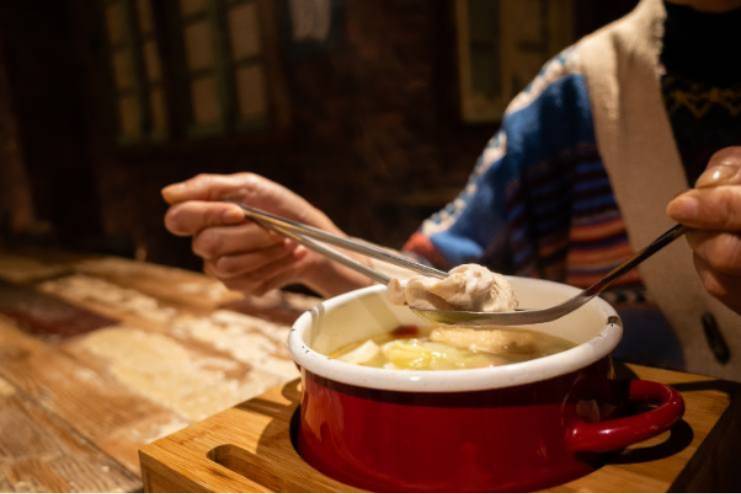
Getting rid of tongue blisters isn’t rocket science. You can heal them by paying close attention to a few preventive measures and following them diligently until the problem is resolved.
- Avoid eating spicy or hot food because the spices and hotness from the food can often interact with tongue sores or blisters and aggravate the situation even further, causing a burning sensation and irritation in the tongue.
- Switch to mashed or soft foods until the sore on the side of the tongue heals completely. For even better sore tongue treatment, pair your food with cold drinks or beverages to provide a soothing feeling.
- Over-the-counter oral medications or ointments even come in handy for treating the condition.
- If the situation persists, it is always best to see a doctor to treat the symptoms that accompany it.
Home Remedies for Tongue Sores
Like a variety of other diseases and medical conditions, tongue blisters can easily be treated with some simple home remedies.
The list of effective home remedies for tongue sores includes:
- Cold Water
- Baking Soda
- Ice for Tongue Sores
- Coconut Oil
- Salt Water
- Aloe Vera
- Hydrogen Peroxide
- Lysine
- Licorice
- Honey
- Cayenne Pepper
- Sage
- Basil For Tongue Sores
- Vitamin B for Tongue Sores
- Coriander for Tongue Sores
- Turmeric
- Garlic and Ginger
- Milk
- Essential Oils
1. Cold Water for Tongue Sores
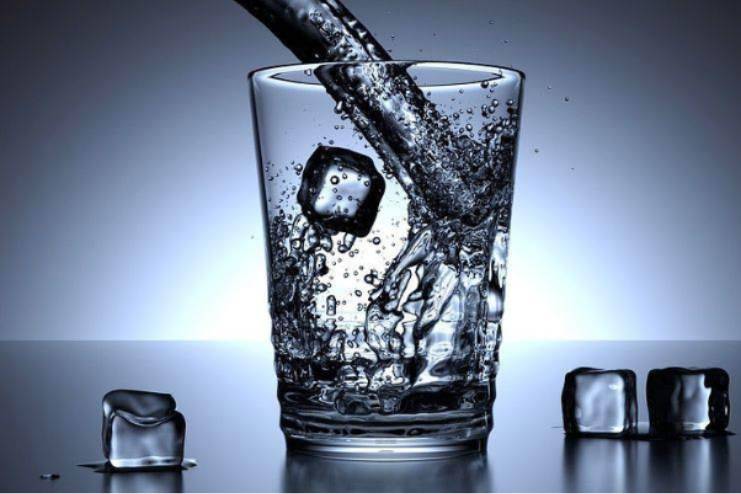
Tongue sores are often accompanied by redness and blisters, which cause pain and irritation in the mouth. Cold water or any cold beverage can significantly ease irritation. The cold water helps provide the mouth and the tongue with a soothing feeling and is often an excellent remedy for getting rid of tongue blisters.
What to do?
- Place a few ice cubes in a glass of water, swish it around your mouth for a few seconds, and then either swallow or spit it out based on your preference.
- Do this multiple times throughout the day
2. Baking Soda for Tongue Sores
Baking soda is known for its antimicrobial (R), antiseptic, and alkalizing properties, which heal the signs and symptoms accompanying tongue sores. If you are looking for an effective way to treat tongue sores, the baking soda remedy is a definite one.
Swirling the baking soda solution in your mouth will help ensure the regulation of the correct maintenance of the pH levels of the mouth. It also washes away any bacterial growth in the tongue because of the blisters or sores.
What to do?
- Combine a glass of water with a half teaspoon of baking soda.
- Swirl this around your mouth and hold it in there for 10-30 seconds
- Spit it out and continue this process until you finish the glass of water.
- Repeat this twice or thrice a day.
Side note: Avoid consuming baking soda (R) water because its alkalizing properties can have ghastly effects on the body, which will not benefit its overall functioning.
3. Ice for Tongue Sores
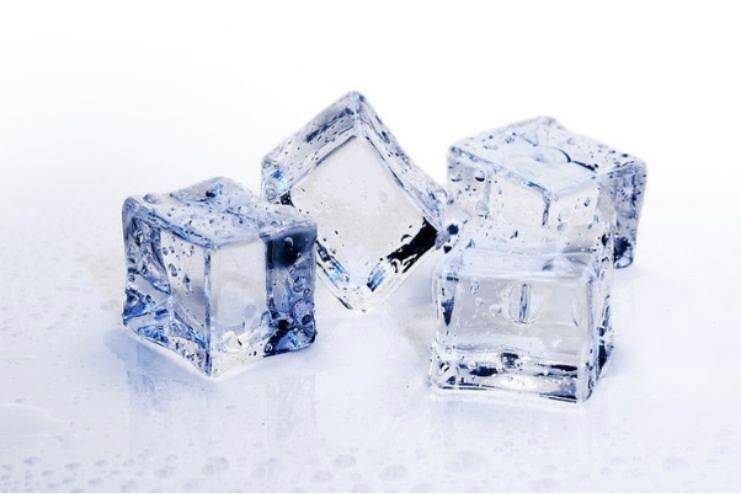
Ice soothes the burning sensation caused by tongue blisters and heals the lesions and skin tears often caused by tongue sores or blisters.
What to do?
- You can directly rub some ice on your tongue sores when they burn or cause pain.
4. Coconut Oil for Tongue Sores
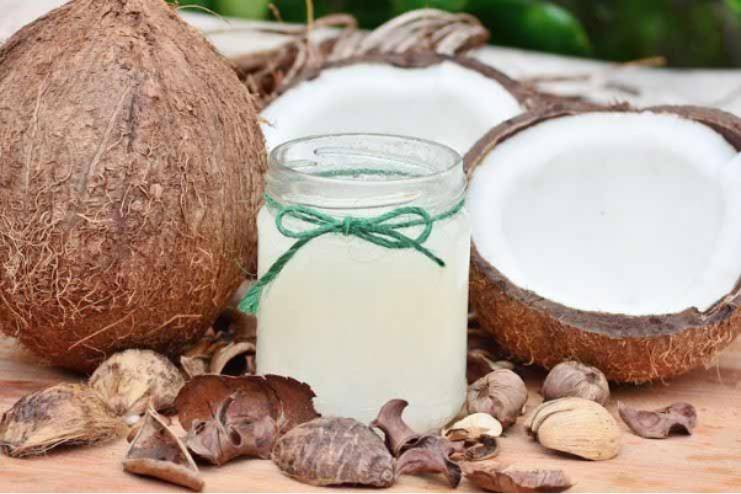
Coconut oil is loaded with excellent anti-inflammatory properties (R), which come in handy for treating the inflammation that often accompanies tongue blisters. It also contains beneficial antimicrobial properties that prevent infections from developing in sores on the side of the tongue.
What to do?
- Melt some edible coconut oil and bring it to room temperature
- Apply this with a cotton swab over the tongue sores
- Leave it just like that and repeat this twice or thrice throughout the day
Side note: Make sure to only use edible and organic coconut oil (R) to treat tongue sores, not the ones used for cosmetic purposes for topical application.
5. Salt Water for Tongue Sores
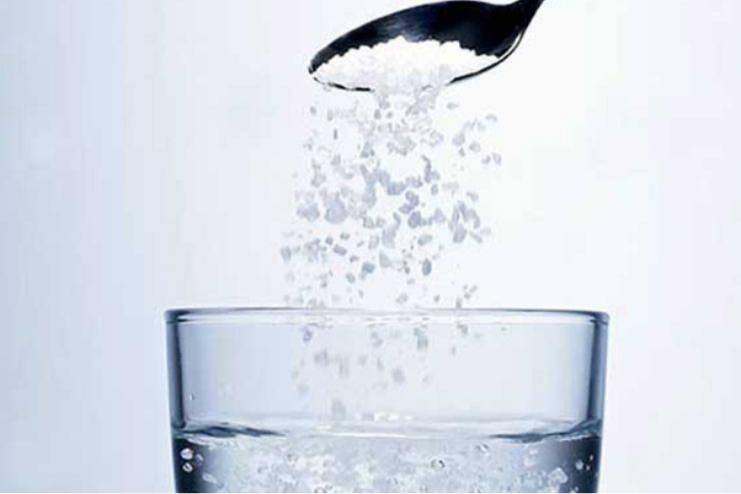
Salt water rinse is yet another method of treating tongue blisters. The salt in this mixture helps dry out the sores on the tongue, thereby gradually healing them.
What to do?
- In a glass of water, combine one teaspoon of salt.
- Stir it till everything completely dissolves
- Sip this, swirl it around the mouth, and hold it in there for 30 seconds before spitting it out
- Repeat this process till you finish the glass of salt water
- Do this every day once or twice till you get rid of the tongue sore completely
6. Aloe Vera
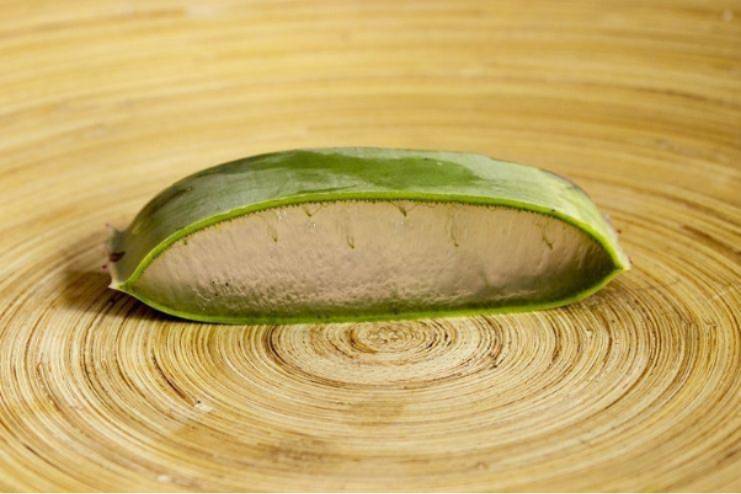
Aloe vera is beneficial as a treatment for tongue blisters because of its high water content, along with its anti-inflammatory and antimicrobial (R) properties. These work together to heal the lesions caused by the sores and blisters. The soothing property of aloe vera also helps bring down the burning sensation that one often experiences.
What to do?
- Cut an aloe vera leaf and scoop the pulp out
- Apply this onto the sores and the blisters and leave it on
- You can also opt for aloe vera (R) juice and use it instead of the pulp directly
- Repeat this process once or twice daily till the sore completely goes away
7. Hydrogen Peroxide
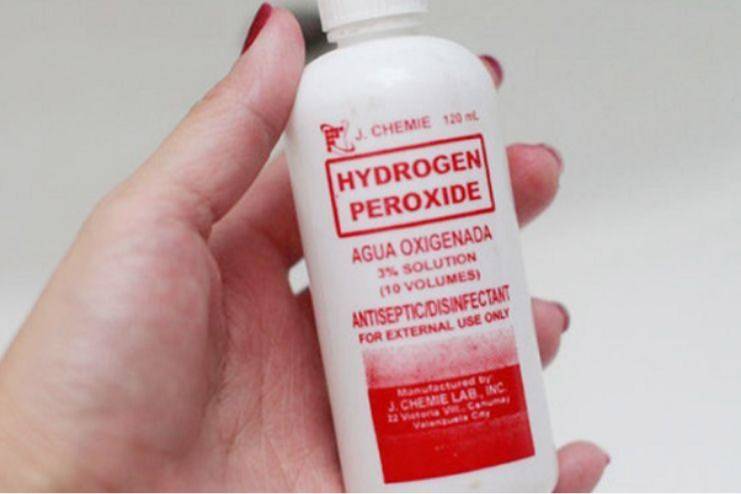
One of the most visible properties of hydrogen peroxide (R) that showcases its benefits in this specific regard is its mild antiseptic properties. It helps relieve a percentage of the mouth irritation that one often feels because of tongue sores or blisters. The hydrogen peroxide solution even helps get rid of any kind of microbial infestation that could be a possible reason for an infection.
What to do?
- Mix one teaspoon of 3% hydrogen peroxide in a glass of water
- Use this as a mouth rinse and spit the remnants out because swallowing can have adverse effects on the body
- Repeat this once every day for evident results in the treatment of tongue sores
8. Lysine for Tongue Sores
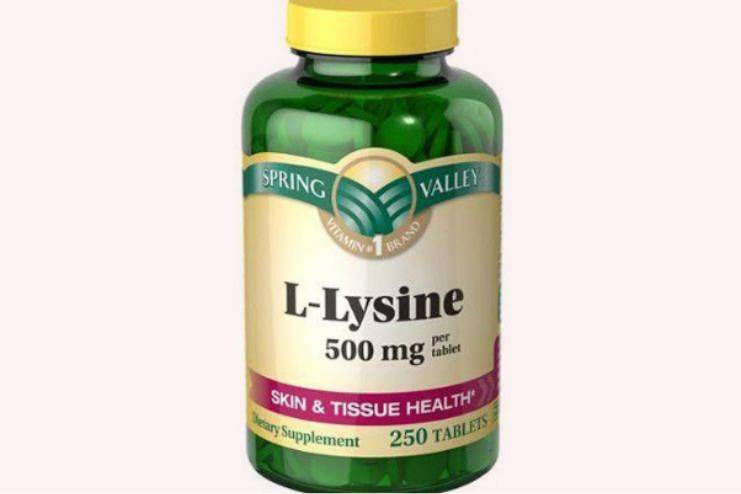
Lysine is an over-the-counter medication that comes in handy for treating mouth sores. Chew these tablets to reduce tongue sores in individuals. They contain a good concentration of compounds that impose anti-inflammatory and antimicrobial properties, which is what helps heal these signs of tongue blisters and sores.
What to do?
- Chew on the lysine tablets, preferably the one with the 500 mg powder
9. Licorice for Tongue Sores
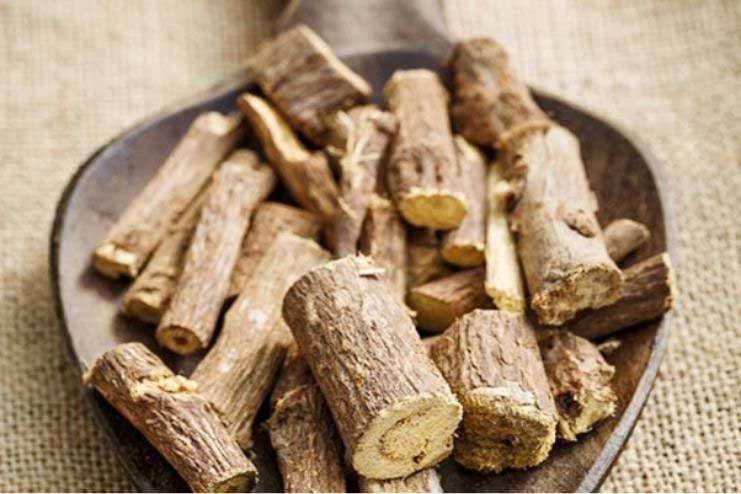
So, the next time you are suffering from tongue sores, and someone mentions licorice as a remedy, don’t just think they are talking about the candy; they are talking about the medicinal root.
Licorice root shrinks the size of tongue sores, thereby contributing to their gradual healing.
What to do?
- Place an adhesive patch of licorice on the affected areas of the tongue sores and leave it be for a few hours
- Repeat this process, changing the patches every day until the signs and symptoms disappear.
10. Honey for Tongue Sores
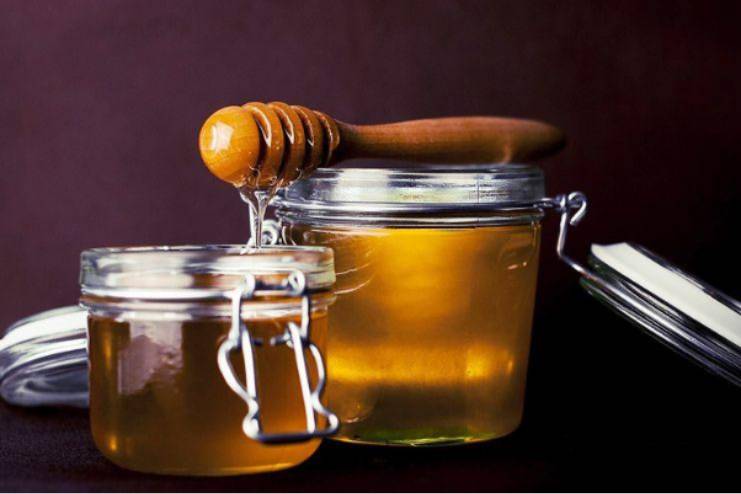
The primary property of honey that plays out its card in treating tongue sores is its anti-inflammatory (R) properties. The moisturizing and the healing properties of honey help heal the sores and the accompanying lesions. Even the antibacterial properties of the honey (R) play a card in treating tongue sores efficiently.
What to do?
- Moisten a cotton swab and apply it on the sore or blister
- Apply honey to the sores by dipping a cotton swab in it
- For more noticeable results, repeat this procedure several times during the day
11. Cayenne Pepper for Tongue Sores

Now, mentioning cayenne pepper for treating tongue sores can be daunting, but trust me, it does work.
Cayenne pepper is rich in compound Capsaicin, which has mild analgesic and numbing (R) properties. So, if your tongue sores have been causing you a lot of pain, try this remedy to relieve the pain caused by blisters on the tongue.
What To Do?
- Take a teaspoon of cayenne pepper powder in a bowl
- Add some water to make a smooth and applicable paste
- Apply this over the affected area of the sore
- Leave it on for some time and then rinse your mouth if the hotness of the pepper becomes overwhelming
12. Sage for Tongue Sores
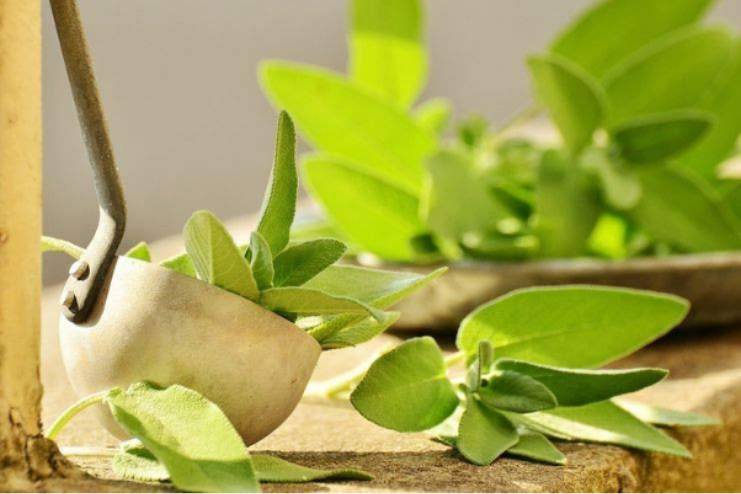
Sage is loaded with beneficial antioxidant, antibacterial (R), and anti-inflammatory (R) properties, which are useful in getting rid of tongue blisters. Sage tea aids in the beneficial healing of tongue sores, which often inflict pain and a burning sensation in some individuals.
What To Do?
- Heat some water in a saucepan and bring it to a boil
- Switch the heat off and add the sage leaves to it
- Let the concoction steep for 5-10 minutes
- Swirl this liquid around your mouth for a minute or two and spit it out
- Repeat this process multiple times throughout the day till you notice changes in the condition of the sores
13. Basil for Tongue Sores
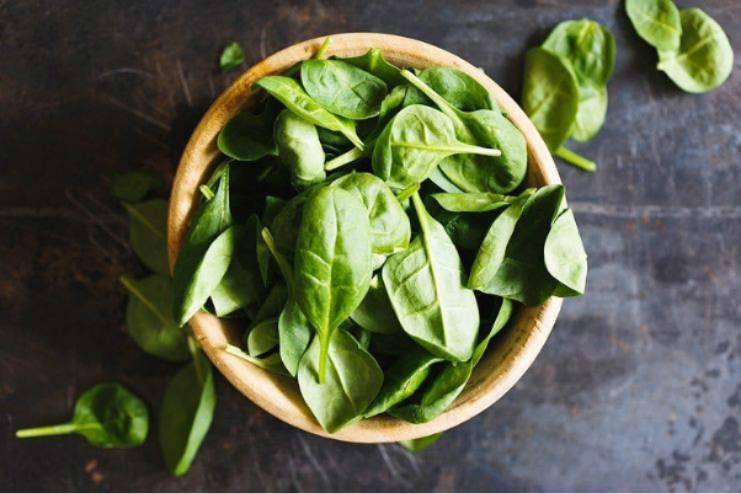
Much like its sister herb, sage, basil has beneficial antibacterial (R), antiseptic, and anti-inflammatory (R) properties, which come in handy for getting rid of tongue sores. Basil has a soothing effect on sores and helps heal them right from the roots. It also promotes the healing of any tissue lesion in the tongue.
What To Do?
- Crush some basil leaves in a mortar and pestle to make a fine paste
- Clean the sore on the side of the tongue with a cotton cloth
- Apply the basil leaves paste over it and leave it on
- If the taste of basil is not something you are good with, rinse your mouth, or else just let it be
- Repeat this multiple times throughout the day till you get rid of tongue sores
14. Vitamin B for Tongue Sores

Vitamin deficiency, especially Vitamin B6 and B12 deficiency, is the primary cause of tongue sores and blisters. The lack of these vitamins in the body often results in inflammation in the tongue, causing pain and irritation.
What To Do?
- Increase the amount of foods high in vitamins B6 and B12 that you eat
- You can also opt for the over-the-counter Vitamin B supplements if you want faster results in healing the problem
15. Coriander for Tongue Sores
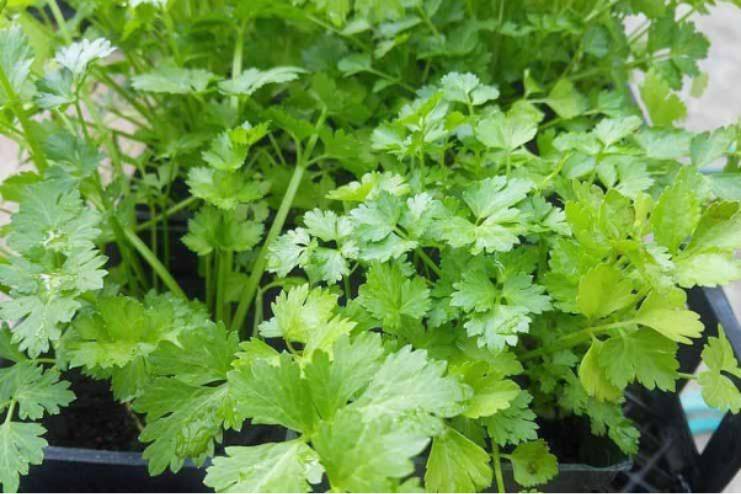
Owing to its amazing anti-inflammatory and antiseptic (R) properties, coriander is considered one of the most beneficial remedies for the treatment of tongue blisters. The benefits aren’t restricted to that; it even helps heal any kind of pain and inflammation that accompanies disease.
What To Do?
- Boil a teaspoon of coriander seed in a saucepan of boiling water. You can also use a bunch of coriander leaves instead of the seeds.
- Please bring it to a boil and let it steep for a few minutes; the more, the better
- After straining, let the liquid cool to room temperature
- Rinse your mouth with this solution, holding the liquid for a few minutes and then expelling it out of the mouth.
- Repeat the same every day until you get rid of tongue sores.
- Turmeric for Tongue Sores
The fantastic antiseptic and antibacterial (R) properties work magic for healing the signs and symptoms that accompany the condition of tongue blisters or sores. The active compound in turmeric, Curcumin (R), has fantastic benefits on various aspects of one’s well-being and is also beneficial for sore tongue treatment.
What To Do?
- Combine two teaspoons of honey with one tablespoon of turmeric powder
- Make a smooth paste with it
- Apply it on the tongue sores and leave it on for 5 minutes
- Wash it off by rinsing your mouth with lukewarm water
- Alternatively, you can also drink turmeric milk (R) to heal these tongue sores from within
17. Garlic and Ginger
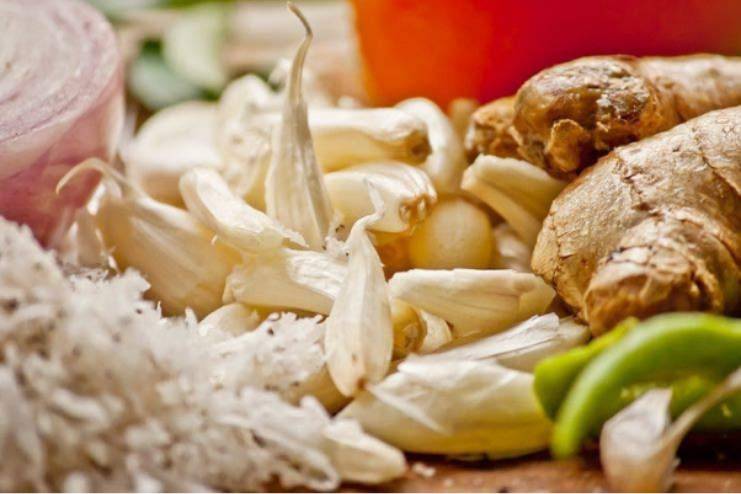
Both ginger (R) and garlic (R) are loaded with excellent antibacterial, antiseptic, and anti-inflammatory properties, making them a fantastic remedy for treating tongue sores. Increasing the consumption of these two condiments in your diet will help prevent the possibility of the contraction of these painful and irritating sores.
What to do?
- Increase your dietary consumption of ginger and garlic daily
- You can even chew on raw garlic for better healing properties
18. Milk for tongue sores
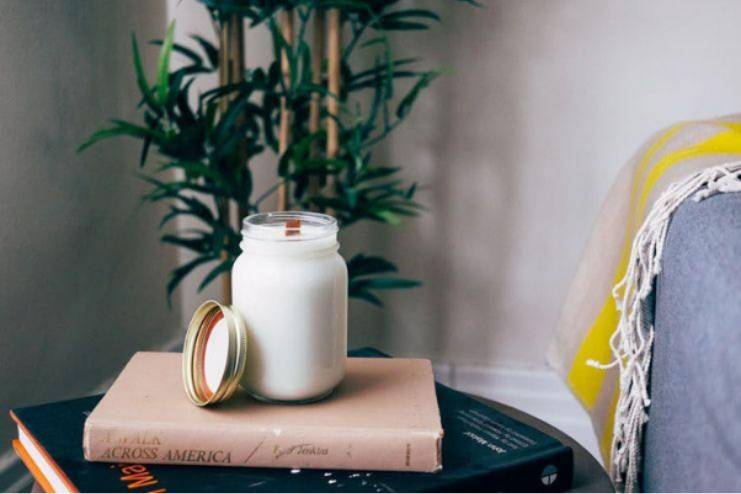
Milk has many nutritional benefits for our body and is a very good option for soothing the lesions and irritation often caused by tongue blisters. Furthermore, it is believed that milk (R) usually mimics the properties of saliva, which protects the tongue by restricting excess production of naturally occurring acids.
What to do?
- Every day, consume one to two glasses of unsweetened milk
19. Essential Oils
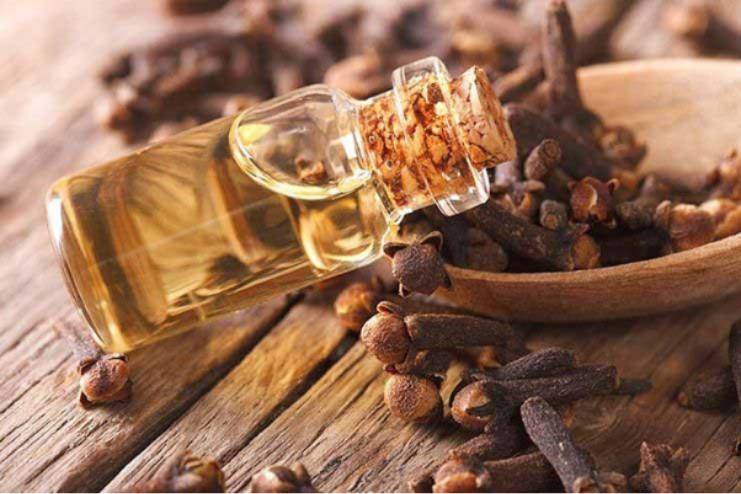
The beneficial effects of clove oil (R) in treating oral pain are not unknown. It has been used as a remedy for toothaches since ancient times, and it also has pronounced effects in the treatment of tongue blisters. It helps shrink the sores, thereby aiding in healing them from within.
What To Do?
- Rinse your mouth with some water to clean the area of the tongue sores
- Use cotton swab dipped in clove oil to dab at the sores
- Leave it on
- Repeat this twice or thrice throughout the day
2. Tea Tree Oil
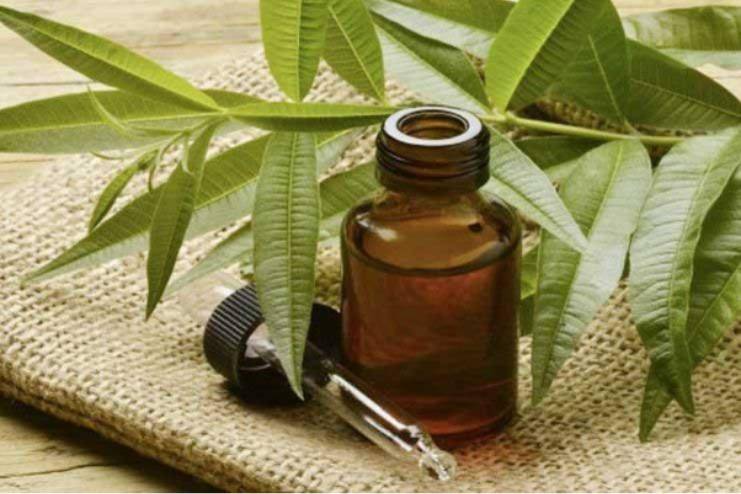
Tea tree oil might not be a great oil for ingestion, but it has beneficial effects in healing tongue sores and even fighting the bacteria that infest the area. It is rich in amazing antibacterial and anti-inflammatory properties that keep the possibility of infection and any kind of inflammation at bay.
What To Do?
- Rinse your mouth with some lukewarm water to clean the sores on the tongue
- Dip Q-tip in the tea tree oil and apply it over the sores
- Leave it on for 15 minutes and rinse your mouth again with lukewarm water to get rid of the stench of the tea tree oil
Are Tongue Blisters Contagious?
It is a misconception that tongue sores are contagious when, in reality, they are not. Tongue sores are often confused with cold sores, which are contracted from the contagious Herpes virus.
If untreated, tongue sores usually spread across the tongue.
Tongue sores can often tax a person’s health because they restrict normal eating, and even inflammation and pain can take a toll on an individual. If you have been suffering from problems like these, it is best to either administer any of the above-mentioned home remedies to treat tongue sores or reach out to a doctor if nothing else works in your favor.
-
July 2018Written by Somapika D
-
Sep 2024Edited by Ankita
In this Article















